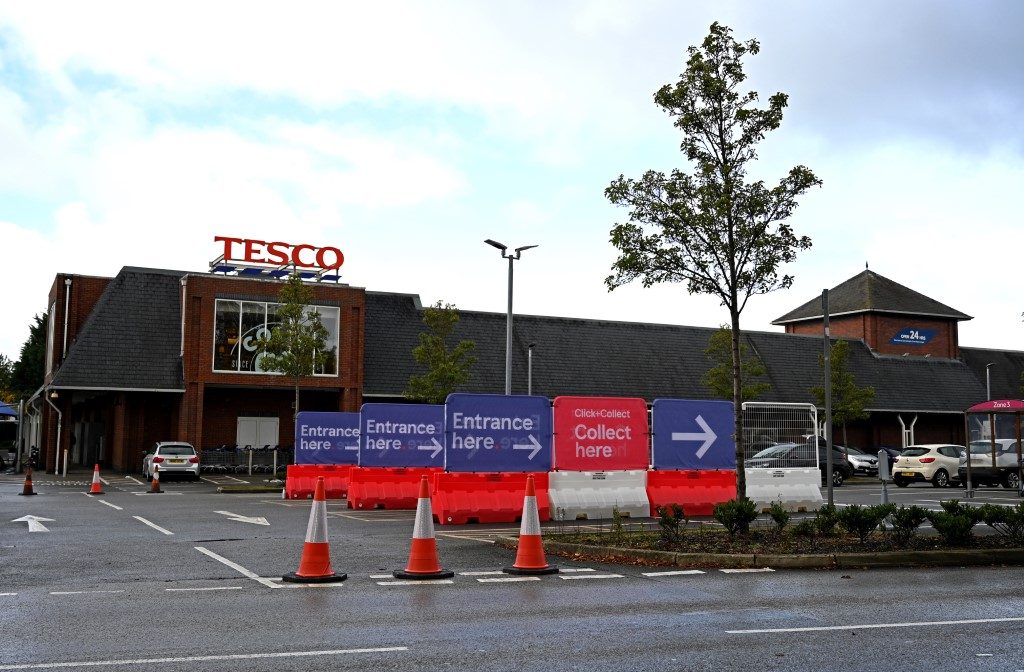SUMMARY
This is AI generated summarization, which may have errors. For context, always refer to the full article.

Britain’s biggest retailer, supermarket giant Tesco, announced on Wednesday, October 7, a 42% jump in net profit in its 1st half on soaring online demand for food during the coronavirus outbreak.
Profit after tax jumped to £460 million ($585 million, 497 million euros) in the 6 months to the end of August, compared with £324 million a year earlier, Tesco said in a statement.
This came despite exceptional costs of £533 million in response to the pandemic, notably the creation of 16,000 jobs to meet the growing online demand.
Tesco’s operating profit dropped 4.5% to £1 billion, while group revenue climbed 6.6% to £26.7 billion.
Sales were fueled by Britons increasingly switching from Tesco’s largest stores to having their groceries delivered.
“Growth in the half was most marked in online with sales up 69%, with the rate of growth reaching 90% during the 2nd quarter,” Tesco said.
Britain began emerging in June from a nationwide lockdown that had lasted nearly 3 months.
Tesco added that sales at its small convenience stores grew 7.6% in the reporting period, with people working from home grabbing, for example, a sandwich at lunchtime.
Sales grew 1.4% in its big traditional stores visited by “customers seeking to shop less frequently whilst buying more on each visit,” Tesco added.
‘Tested our business’
“The 1st half of this year has tested our business in ways we had never imagined, and our colleagues have risen brilliantly to every challenge, acting in the best interests of our customers and local communities throughout,” new chief executive Ken Murphy said in the statement.
“We are absolutely committed to continuing to invest in value for customers and safety for all in these uncertain times,” he added.
Murphy, former executive at pharmacy group Walgreens Boots Alliance, replaced Dave Lewis who oversaw a major overhaul at Tesco during his 5 years at the helm, axing thousands of jobs as part of a massive cost-cutting program.
On Wednesday, Tesco’s share price climbed 2.2% to £2.19 in London morning trading.
“It turns out that Tesco’s initial expectation that the benefits from a change in the UK’s shopping habits would be outweighed by the extra costs associated with adapting to COVID-19 realities was a bit conservative,” noted AJ Bell investment director Russ Mould.
“Despite the investment required for hygiene measures, distancing, and an expansion of its online delivery capacity, the company still reported an impressive advance in 1st half profit.”
Tesco agreed in its 1st half to sell its businesses in Thailand, Malaysia, and Poland in deals set to deliver billions of pounds to the group. – Rappler.com
Add a comment
How does this make you feel?

![[Rappler’s Best] US does propaganda? Of course.](https://www.rappler.com/tachyon/2024/06/US-does-propaganda-Of-course-june-17-2024.jpg?resize=257%2C257&crop=236px%2C0px%2C720px%2C720px)








There are no comments yet. Add your comment to start the conversation.